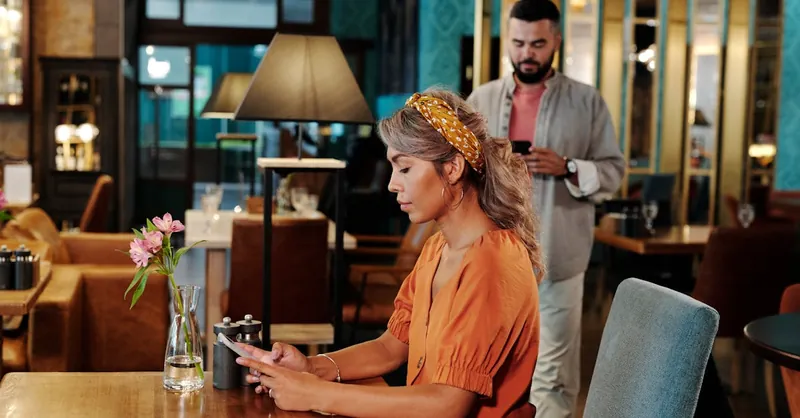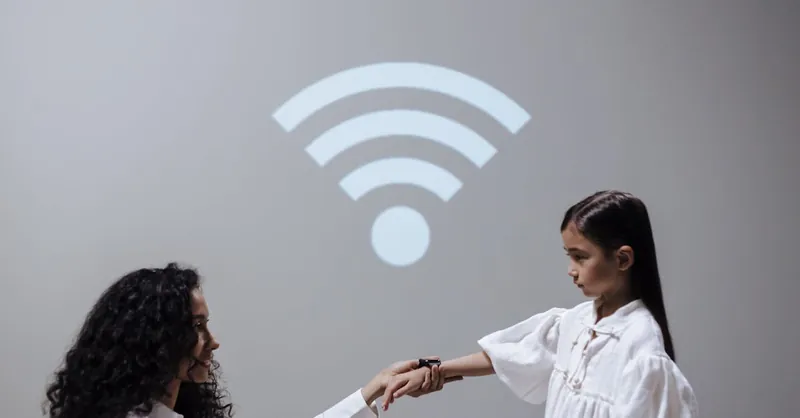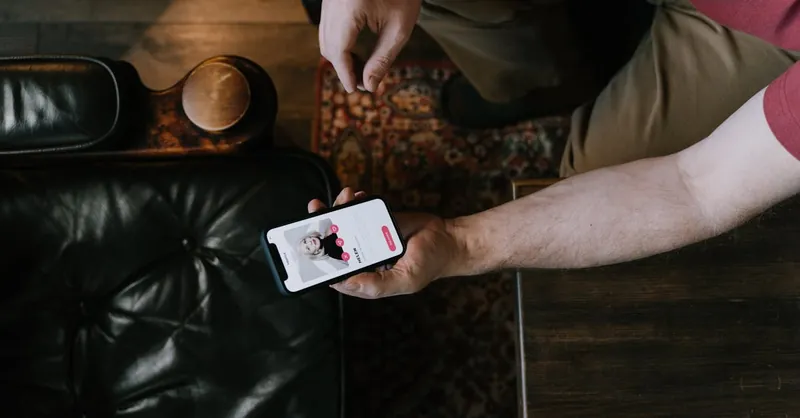Navigating Modern Dating Challenges: Clear Guidance for Singles & Couples
Category: Romance & Relationships
Unlocking Success in Today's Complex Dating World
Navigating modern dating challenges can feel like deciphering an ever-changing puzzle for both singles looking to find meaningful connections and couples seeking to deepen their bond. Whether you're swiping through dating apps or facing communication barriers in a relationship, the modern dating landscape poses unique hurdles that require clear, practical solutions. You’ve likely landed here because you want straightforward, insightful guidance that cuts through the noise—whether it's managing ghosting, balancing digital intimacy, or reigniting romance. This post is tailored precisely for you—someone who understands the stakes and complexities yet desires a way to move forward with confidence and clarity.
Unlike generic advice, here we focus on actionable insights that respect your experience and the emotional nuances of building or sustaining love today. We dive deep into real challenges and offer thoughtful strategies that promote pleasure, connection, and honest communication. This guide is meant to empower you—not overwhelm you—with clear steps to thrive regardless of your relationship status. Read on to discover how to navigate this fast-evolving dating terrain with insight, calm, and genuine fulfillment.
- Unlocking Success in Today's Complex Dating World
- Understanding Modern Dating: Technology, Social Norms, and Expectations
- Effective Communication in a Digital Age: Maintaining Authenticity and Setting Boundaries
- Managing Dating App Fatigue and Overwhelm: Tips for Avoiding Burnout and Curating Your Digital Dating Experience
- Identifying Red Flags and Emotional Safety: How to Recognize Unhealthy Patterns Early and Foster Trust and Respect in Budding Relationships
- Balancing Independence and Intimacy: Navigating Autonomy and Connection in Modern Relationships
- Navigating Ghosting, Breadcrumbing, and Other Modern Dating Pitfalls: Strategies for Resilience, Clarity, and Self-Respect
- Building Pleasure and Romance in Casual and Committed Relationships: Enhancing Physical Intimacy and Emotional Connection
- Conflict Resolution and Healthy Boundaries: Tools for Addressing Disagreements Constructively and Respecting Individual Limits in Dating and Relationships
- The Role of Self-Awareness and Emotional Intelligence: How Understanding Yourself Better Improves Dating Outcomes and Relationship Satisfaction
- Future-Proofing Your Love Life: Adapting Habits and Mindsets for Lasting Fulfillment
Understanding Modern Dating: Technology, Social Norms, and Expectations
The landscape of dating has been fundamentally reshaped by rapid advances in technology, shifting social norms, and evolving relationship expectations. Dating apps and social media platforms have become the primary arenas for meeting potential partners, introducing both convenience and complexity into how we connect. While these digital tools offer unprecedented access to a wider pool of matches, they also create challenges such as decision paralysis, superficial judgments, and a tendency toward fleeting interactions rather than deep connections. Understanding how technology influences behavior is essential for navigating the modern dating world with intention and self-awareness.
Simultaneously, changing social norms around gender roles, communication styles, and relationship structures add layers of nuance to dating dynamics. Traditional expectations are continually being questioned and redefined, which can lead to confusion or mismatched assumptions between partners. For instance, the rise of open relationships and the de-stigmatization of casual dating reflect a broader acceptance of diverse ways to experience intimacy—but also require clearer communication and stronger emotional intelligence. Furthermore, the pressure to craft an idealized online persona often clashes with the desire for authentic connection, creating tension between appearance and reality. By recognizing these influences, singles and couples can better equip themselves to handle misunderstandings, manage expectations, and build meaningful, lasting relationships in an increasingly complex modern environment.

Image courtesy of Jep Gambardella
Effective Communication in a Digital Age: Maintaining Authenticity and Setting Boundaries
In today’s digital dating landscape, effective communication is more than just exchanging messages—it’s about fostering genuine connections while navigating the unique challenges posed by texting, dating apps, and in-person interactions. Maintaining authenticity amid the curated world of online profiles and quick chats can feel daunting, but prioritizing honesty and clarity is essential. Authentic communication builds trust early on, helps to clarify intentions, and distinguishes meaningful conversations from superficial exchanges.
To communicate effectively across platforms, it’s critical to set boundaries that protect your emotional well-being and clarify expectations. Boundaries can involve how quickly you respond to messages, the level of personal information shared early on, or deciding when to move conversations offline. Without clear boundaries, the risk of miscommunication, burnout, or feeling overwhelmed increases significantly.
Tips to Improve Conversations Across Texting, Apps, and Face-to-Face
- Be Intentional and Clear: Whether you’re texting or chatting in person, express your feelings and intentions straightforwardly to avoid misunderstandings. Avoid vague messages; instead, use clear language that reflects how you truly feel.
- Balance Digital and Real-Life Interaction: Don’t rely solely on apps or texting to build rapport. Plan meaningful in-person meetings when safe and feasible to deepen emotional connections beyond screens.
- Practice Active Listening: Whether online or offline, demonstrate genuine interest by responding thoughtfully and asking open-ended questions. This helps conversations feel more engaging and less transactional.
- Respect Your Own and Others’ Boundaries: Communicate your limits politely but firmly—for example, if you prefer slow-paced texting or don’t want to share certain personal details upfront. Equally, be attentive to signs when your date or partner sets their own boundaries.
- Stay Present and Honest: Avoid multitasking during conversations (even texts!) to ensure you give full attention. Honesty about your intentions and availability encourages reciprocal transparency.
By integrating these strategies, singles and couples can transform potentially ambiguous digital exchanges into deeply fulfilling communication experiences. Honoring authenticity and clear boundaries in a world dominated by screens elevates the quality of your dating life and nurtures emotional safety—a foundation critical for any thriving relationship in modern times.

Image courtesy of Ron Lach
Managing Dating App Fatigue and Overwhelm: Tips for Avoiding Burnout and Curating Your Digital Dating Experience
While dating apps offer unparalleled access to potential partners, they can also lead to dating app fatigue—a state of exhaustion, frustration, or disillusionment stemming from endless swiping, messaging, and cyclical disappointment. Many singles and even couples exploring app-based dating report feeling overwhelmed by the sheer volume of options, inconsistent communication, or pressure to present themselves perfectly online. This fatigue not only diminishes the joy of dating but can also cause emotional burnout, making it harder to sustain motivation and authentic connection.
To avoid burnout and maintain a healthy mindset, it’s crucial to set realistic expectations and take intentional steps to curate your digital dating experience:
- Limit Your Time on Apps: Set a daily or weekly cap for app usage to prevent mindless scrolling. Use timers or reminders to stay mindful of how much time you invest.
- Prioritize Quality over Quantity: Focus on engaging deeply with a few promising matches rather than juggling dozens of surface-level conversations. Quality interactions foster stronger, more meaningful connections.
- Create Boundaries Around Notifications: Silence nonessential alerts to reduce digital distractions and emotional spikes caused by constant pings.
- Schedule App-Free Breaks: Regularly disconnect from dating apps for mental refreshment. Use this time to nurture offline relationships and self-care routines.
- Be Honest with Yourself About Your Goals: Clarify whether you’re dating casually, seeking a serious relationship, or just exploring. Align your app use and conversations accordingly to reduce confusion and mismatch.
- Curate Your Profiles Thoughtfully: Present an authentic and focused image that attracts compatible matches. Avoid trying to appeal to everyone, which can contribute to overwhelm and misaligned expectations.
By adopting these strategies, you regain control over your digital dating life, transforming it from a stressful obligation into an empowering, enjoyable journey. Approaching dating apps with intention and clear boundaries not only preserves your emotional wellbeing but also increases your chances of forming genuine, satisfying connections in the fast-paced modern dating world.

Image courtesy of cottonbro studio
Identifying Red Flags and Emotional Safety: How to Recognize Unhealthy Patterns Early and Foster Trust and Respect in Budding Relationships
Building emotional safety is foundational in any new relationship, especially in today’s fast-paced dating culture where initial chemistry can sometimes overshadow critical red flags. Recognizing unhealthy patterns early not only protects your well-being but also paves the way for a connection built on trust, respect, and mutual understanding. Common red flags to watch for include inconsistent communication, dismissiveness of your feelings, excessive jealousy, lack of accountability, and attempts to isolate you from your support network. These warning signs often indicate underlying issues that can escalate if left unaddressed.
To foster emotional safety while navigating early relationship stages, prioritize honest dialogue about boundaries, past experiences, and expectations. Encourage open, non-judgmental communication where both partners feel heard and validated. Establishing clear emotional boundaries helps prevent misunderstandings and builds a foundation of respect. Additionally, trusting your intuition is crucial—if something feels off or if your partner repeatedly crosses boundaries, it’s important to evaluate whether the relationship aligns with your values and emotional needs. By combining awareness of red flags with intentional trust-building practices, singles and couples can cultivate healthier, more fulfilling connections that stand the test of modern dating’s complexities.

Image courtesy of Gustavo Fring
Balancing Independence and Intimacy: Navigating Autonomy and Connection in Modern Relationships
One of the most nuanced challenges in today’s dating landscape is finding the delicate balance between maintaining personal independence and fostering deep intimacy with a partner. Modern singles and couples often wrestle with how to preserve their own identity, freedom, and goals while simultaneously building emotional closeness and mutual reliance. This tension can lead to confusion or conflict if not managed with thoughtful awareness and communication.
Balancing independence and intimacy means recognizing that healthy relationships thrive when both partners feel free to pursue their interests, set boundaries, and maintain friendships outside the relationship—while also prioritizing shared experiences, vulnerability, and emotional support. Key strategies to navigate this balance include:
- Embrace Interdependence, Not Codependence: Aim for a relationship dynamic where you and your partner rely on each other for emotional support without losing sight of your own strengths and autonomy. This mutual reliance fosters connection without unhealthy dependency.
- Set Clear, Respectful Boundaries: Communicate openly about your needs for alone time, personal space, or individual ambitions. Boundaries are essential to prevent feelings of suffocation and to nurture trust.
- Cultivate Shared Goals Alongside Personal Dreams: Discuss and align on relationship priorities as well as individual aspirations. Supporting each other’s personal growth can actually deepen intimacy rather than detract from it.
- Practice Vulnerability with Caution and Courage: Being emotionally available to your partner builds closeness, but it’s equally important to safeguard your emotional well-being and avoid over-sharing prematurely.
- Regularly Check In and Reassess Your Needs: As relationships evolve, so do your desires for independence and connection. Consistent, honest conversations about how you both feel can help maintain a healthy equilibrium.
By intentionally balancing autonomy with intimacy, singles and couples create relationships that celebrate individuality while fostering trust, closeness, and genuine partnership. This dynamic is essential for lasting romance and pleasure in the modern age, offering emotional fulfillment without sacrificing personal freedom.

Image courtesy of Black Sete
Navigating Ghosting, Breadcrumbing, and Other Modern Dating Pitfalls: Strategies for Resilience, Clarity, and Self-Respect
In the fast-paced, digitally-driven world of modern dating, encountering ambiguous or harmful behaviors like ghosting, breadcrumbing, and other forms of inconsistent communication has become an all-too-common experience. These patterns can leave you feeling confused, rejected, or drained, threatening your emotional well-being and self-esteem. However, understanding these behaviors and adopting proactive strategies can empower you to maintain resilience, clarity, and self-respect throughout your dating journey.
Ghosting—when someone abruptly cuts off all contact without explanation—often leaves unanswered questions and emotional turmoil. Similarly, breadcrumbing involves receiving intermittent, noncommittal messages that keep you “on the hook” without genuine intention to progress the relationship. These behaviors reflect avoidance and lack of accountability more than anything about your worth or desirability. To navigate these challenges effectively:
- Recognize the Signs Early: Pay attention to inconsistent communication patterns, vague responses, or sudden silence. The sooner you identify these red flags, the faster you can protect your emotional energy.
- Prioritize Your Emotional Boundaries: Set firm limits on how much time and attention you invest in ambiguous situations. Respecting your own boundaries fosters self-respect and reduces the risk of being trapped in unhealthy cycles.
- Seek Clarity When Possible: It’s okay to ask direct questions about intentions or communication lapses. While you can’t control others’ behaviors, requesting clarity signals that you value honesty and expect respect.
- Practice Self-Compassion and Resilience: Remind yourself that these behaviors are a reflection of others’ limitations, not your value. Engage in self-care practices and lean on trusted support networks to regain balance.
- Refocus on Meaningful Connections: Redirect your energy towards relationships where communication is transparent and feelings are reciprocated. Prioritize interactions that nourish your sense of connection and well-being.
By implementing these strategies, you cultivate a dating mindset rooted in clarity, emotional strength, and self-worth—equipping you to move beyond modern dating pitfalls with confidence. This approach not only preserves your mental health but also attracts more authentic, respectful connections that align with your true desires. Being mindful of such behaviors empowers both singles and couples to create healthier relational dynamics in today’s complex dating environment.

Image courtesy of Tima Miroshnichenko
Building Pleasure and Romance in Casual and Committed Relationships: Enhancing Physical Intimacy and Emotional Connection
Whether you’re navigating the fresh excitement of casual dating or investing in a long-term committed partnership, cultivating pleasure and romance remains central to sustaining attraction and deepening emotional bonds. Modern relationships—regardless of their structure or exclusivity—benefit tremendously from intentional efforts to enrich both physical intimacy and emotional connection. This holistic approach fosters satisfaction, trust, and mutual fulfillment, which are essential for thriving in today’s dynamic dating environment.
Enhancing Physical Intimacy with Presence and Playfulness
Physical intimacy goes beyond sex—it includes touch, closeness, and shared moments that foster warmth and attraction. To build a satisfying intimate life, consider these key strategies:
- Prioritize Mindful Presence: Actively engage in physical moments, free of distractions like phones or stress. Being fully present heightens sensual awareness and deepens connection.
- Explore Mutual Pleasure: Open communication about likes, dislikes, and fantasies encourages a playful and experimental dynamic that keeps desire vibrant.
- Embrace Variety and Spontaneity: Introducing new experiences, whether through different settings, rhythms, or sensory elements, sustains excitement and prevents intimacy stagnation.
- Respect Boundaries and Consent: Clear, continuous communication about comfort levels fosters safety and trust, creating space for authentic physical expression.
Deepening Emotional Connection Through Vulnerability and Appreciation
Emotional intimacy strengthens all forms of relationships by building trust, understanding, and a sense of belonging. Whether casually dating or committed, nurturing this connection involves:
- Sharing Vulnerabilities: Opening up about fears, dreams, and feelings cultivates closeness and demonstrates trustworthiness.
- Practicing Regular Appreciation: Expressing gratitude and acknowledging your partner or date’s unique qualities reinforces positive regard and emotional safety.
- Creating Rituals of Connection: Simple routines like weekly check-ins or meaningful date experiences build a steady foundation of mutual care and attention.
- Balancing Independence with Togetherness: Encouraging personal growth alongside shared experiences enriches connection while preserving individuality.
By combining physical pleasure with authentic emotional engagement, singles and couples alike can transform their relationships into deeply satisfying sources of joy and intimacy. This integrated focus not only enhances romantic fulfillment but also supports resilience against modern dating stresses, empowering you to build connections that are both passionate and profoundly nurturing.

Image courtesy of SHVETS production
Conflict Resolution and Healthy Boundaries: Tools for Addressing Disagreements Constructively and Respecting Individual Limits in Dating and Relationships
In any dating scenario or relationship, conflict is inevitable, but the way partners navigate disagreements can either strengthen their bond or drive a wedge between them. Modern dating challenges—ranging from differing communication styles to mismatched expectations—require skillful conflict resolution techniques and a firm commitment to healthy boundaries. Addressing disagreements constructively fosters mutual respect and emotional safety, while establishing individual limits prevents resentment and emotional exhaustion.
Key Strategies for Constructive Conflict Resolution
- Communicate Openly and Calmly: Approach conflicts with honesty and a willingness to listen, avoiding blame or defensiveness. Use “I” statements to express feelings without accusing (e.g., “I feel unheard when...”).
- Focus on the Issue, Not the Person: Keep the conversation centered on the specific behavior or problem instead of attacking character traits. This reduces escalation and promotes solution-oriented dialogue.
- Embrace Emotional Regulation: Take breaks if emotions run too high to prevent saying things you might regret. Returning to the discussion with a calmer mindset enables clearer understanding.
- Seek Compromise and Collaboration: Aim for mutually beneficial outcomes rather than “winning” the argument. Valuing your partner’s perspective creates a cooperative rather than competitive dynamic.
- Practice Forgiveness and Letting Go: Holding onto grudges impedes relationship growth. Forgiveness fosters healing and helps both partners move forward with renewed trust.
Establishing and Maintaining Healthy Boundaries
Healthy boundaries delineate what is acceptable and safe for each individual, encouraging self-respect and respect within the relationship. Setting clear boundaries includes:
- Defining Personal Limits: Be explicit about your needs—whether regarding time, communication frequency, physical intimacy, or emotional availability—to prevent misunderstandings.
- Respecting Differences: Understand that your partner’s boundaries may differ and honoring them is essential to maintain trust.
- Revisiting Boundaries Regularly: Boundaries are dynamic and may shift as relationships evolve. Periodic check-ins ensure that both partners feel comfortable and respected.
- Enforcing Boundaries Consistently: Calmly reiterate your limits when they are challenged and be prepared to take action if boundaries are repeatedly ignored.
Mastering conflict resolution and maintaining healthy boundaries equips singles and couples with essential tools to navigate misunderstandings while preserving dignity and connection. These practices are foundational in building resilient, respectful relationships where both individuals feel valued, safe, and empowered—key ingredients for lasting happiness in today’s complex dating environment.

Image courtesy of cottonbro studio
The Role of Self-Awareness and Emotional Intelligence: How Understanding Yourself Better Improves Dating Outcomes and Relationship Satisfaction
Developing self-awareness and cultivating emotional intelligence (EI) are powerful tools that significantly enhance your dating experiences and overall relationship satisfaction. When you have a clear understanding of your own emotions, needs, and patterns, you can navigate modern dating challenges with greater clarity and confidence. Self-awareness allows you to recognize your triggers, communication style, and attachment needs, reducing misunderstandings and enabling you to approach connections with authenticity.
Emotional intelligence—the ability to identify, understand, and manage your own emotions while empathizing with others—plays a critical role in fostering meaningful, lasting relationships. In the context of dating, high EI helps you:
- Communicate More Effectively: By perceiving both your feelings and your partner’s emotional cues, you can respond with empathy and precision, minimizing conflicts and deepening intimacy.
- Manage Rejection and Disappointment: Recognizing and processing your emotions allows you to bounce back from setbacks such as ghosting or mismatched expectations without internalizing blame.
- Set and Respect Boundaries Authentically: Understanding your limits and articulating them clearly empowers you to maintain emotional safety and avoid toxic dynamics.
- Make Thoughtful Choices: Reflecting on your relationship patterns and what truly fulfills you guides more intentional dating decisions, helping you avoid repetitive cycles or unsuitable matches.
- Cultivate Compassion and Patience: Emotional intelligence nurtures kindness toward both yourself and others, paving the way for vulnerability and deeper connection.
To enhance self-awareness and emotional intelligence in your dating journey, consider practices like mindfulness meditation, journaling your relationship experiences, seeking feedback from trusted friends, or engaging in therapy/coaching. By actively tuning into your inner world, you build a strong emotional foundation that supports healthier, more rewarding romantic encounters. Ultimately, merging self-knowledge with emotional insight transforms dating from a guessing game into a purposeful path toward connection, pleasure, and fulfillment.

Image courtesy of cottonbro studio
Future-Proofing Your Love Life: Adapting Habits and Mindsets for Lasting Fulfillment
In an era defined by rapid cultural shifts, technological innovation, and evolving personal growth paradigms, future-proofing your love life means cultivating adaptable habits and flexible mindsets that can withstand the test of time. Lasting fulfillment in dating and relationships no longer hinges on static rules but rather on your ability to evolve alongside changing norms and your own inner development. This proactive approach ensures that your romantic connections remain resilient, meaningful, and deeply satisfying amid ongoing societal transformations.
Cultivating a Growth-Oriented Mindset
At the heart of future-proofing is embracing a growth-oriented mindset—the belief that relationships and individuals can evolve positively through effort, learning, and intentional reflection. This mindset empowers singles and couples to:
- Adapt to Cultural and Technological Changes: Whether it's recalibrating expectations around digital intimacy or rethinking traditional roles in relationships, being open to new ideas fosters stronger adaptability and reduces friction.
- Prioritize Continuous Personal Growth: As you deepen self-awareness and emotional intelligence, your capacity to communicate effectively, set healthy boundaries, and engage in authentic vulnerability expands—key skills for sustaining connection over time.
- Shift from Outcome-Focused to Process-Oriented Dating: Valuing the journey of connection rather than rushing toward predefined milestones encourages patience and resilience, which are critical in navigating modern dating complexities.
Practical Habits to Build Lasting Relationship Resilience
To future-proof your love life, integrate these actionable habits into your dating and relational practices:
- Regularly Reassess Your Values and Goals: Societal trends and personal circumstances change; staying aligned with your evolving relationship priorities helps maintain clarity and mutual growth.
- Embrace Technology Mindfully: Use dating apps and digital communication tools as facilitators—not replacements—for genuine human connection. Set boundaries around screen time and digital behaviors that may undermine intimacy.
- Invest in Emotional Agility: Cultivate the ability to navigate uncertainty, manage conflicts constructively, and bounce back from setbacks with compassion for yourself and others.
- Nurture Diverse Social and Support Networks: Broaden your sources of emotional support beyond romantic partners to include friends, family, and communities, promoting balanced interdependence.
- Celebrate Small Wins and Moments of Joy: Recognize and appreciate everyday instances of connection, pleasure, and growth to sustain motivation and positive feelings in your romantic journey.
By consciously shaping your habits and mindset around adaptability, emotional resilience, and authentic connection, you create a robust foundation for lasting love. This future-proof approach not only helps you navigate the unpredictability of modern dating but also transforms relationships into dynamic, fulfilling partnerships that grow richer with time.

Image courtesy of George Pak
